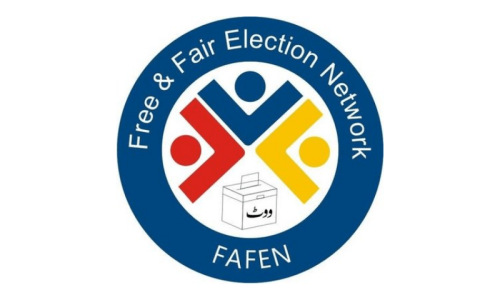BOGOTA: In more than six years as a captive of Colombian guerrillas, Ingrid Betancourt was transformed from a slim, combative lawmaker to a gaunt prisoner waiting despondently for freedom in the dense jungle.
Betancourt became an international symbol of suffering of guerrilla hostages as her dual French-Colombian citizenship helped draw worldwide attention to the plight of those held for years in secret rebel camps.
Betancourt, who the government said was rescued by Colombian troops on Wednesday was the highest profile captive held by the Revolutionary Armed Forces of Colombia or FARC, Latin America’s oldest surviving left-wing insurgency.
The government said she and 14 other rescued hostages, including three American defence contractors, were in reasonably good health.
“In all these years, I thought that as long as I was alive, as long as I continued to breathe, I must continue to hope,” she wrote in a letter released at the end of 2007. “I don’t have the strength I used to have.”
The last images of her in captivity showed Betancourt, 46, frail and despondent sitting in a hidden jungle camp. Former hostages said she was often chained up and forced to walk barefoot as punishment for her stubborn attempts to escape.
Rebels captured the former senator with her campaign partner on a remote jungle road in the south of the country shortly after peace talks with the guerrillas had broken down and the army had moved in to retake areas under FARC control.
Her campaign partner Clara Rojas, who had a child while in captivity, was released by the FARC at the start of this year in a deal brokered by Venezuelan President Hugo Chavez.
Betancourt’s name became well known in the French-speaking world. Her two grown children took part in protests in Paris, where they lived with their father, Betancourt’s first husband whom she met while studying in France.
French President Nicolas Sarkozy made Betancourt’s release a foreign policy priority. He sent a medical team to try to reach her in her jungle camp, but it failed after rebels refused to cooperate.
Sarkozy said in a televised message to the FARC leadership: “You, who lead the FARC, you have a rendezvous with history. Don’t miss it. Free Ingrid Betancourt and the weakest hostages”.
Toward the end of her captivity, messages from Betancourt portrayed her as losing her will to go on. “I am tired of suffering, of carrying it within me everyday, of lying to myself and of seeing that every day is the same hell as the one before,” she wrote in the 2007 letter.
“I feel like the life of my children is on standby, waiting for me to be free and their daily suffering makes death seem like a sweet option.”
Local officials earlier this year said they had reports that she was “very delicate” with hepatitis B and malnutrition.
Rebels had taken her for treatment in remote rural clinics in the jungle.
Betancourt always presented herself as a fighter against corruption and was known for her feistiness. She once staged a hunger strike to protest the investigation of drug ties to the then-president as “a mockery of justice”.
Her political career had its lighter moments. During her campaign for the presidency in 2002, she gave out free samples of the impotence pill Viagra with a promise to invigorate Colombians in their fight against war and corruption.
In that contest she stood little chance against now President Alvaro Uribe, who captured the attention of war-weary Colombians with a vow to destroy the FARC with a hard-line military approach and won overwhelmingly.
—Reuters












































Dear visitor, the comments section is undergoing an overhaul and will return soon.